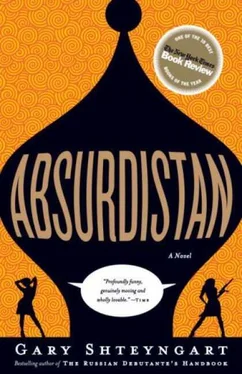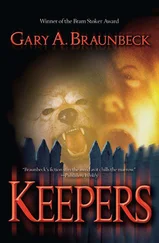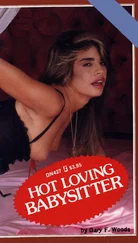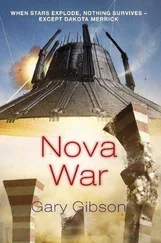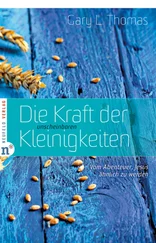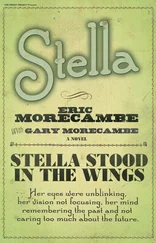The dinosaur tapped on his watch. “We haven’t the time.”
“He’s Jewish,” I lied.
“Your manservant ? Jewish?”
I was running down the empty corridor, petite French doors swinging aside in anticipation of my arrival. Finally I stumbled upon a beautiful Russian girl rouging her considerable cheeks. This must have been the very Oksana Petrovna who had left us that thoughtful notecard. True to Nana’s words, there was something sluttish in the girl’s comportment. “Miss,” I said in English. “I need my manservant to help make my toilet. Rouse him from his slumber. And quickly!”
The girl hurriedly snapped shut her compact case, leaving one freckled cheek bare of pomade. “I am here only just for you!” she cried as she leaped into a nearby cabin, dragging out my befuddled Timofey by his ear. I thanked her, grabbed Timofey by the ear myself, and yanked him to the passenger car.
Avram had unlatched a side door and was already scurrying down with my luggage. As Nana approached with her 718 cosmetics bags, the Mountain Jew put a hand out in front of her breasts. “I know she’s your girlfriend,” he said to me, “but if we take her off the train, there might be trouble for our community. What’s left of the SCROD might attack our village. It might not be good for the Jews.”
“She’s my Nana, and she goes with me,” I said, knocking back Avram’s hand. He sighed wearily, prehistorically, and followed us out onto the golden grass. We ran down the slope of a nearby hill falling away from the railroad tracks, our urban feet struggling to make sense of the uneven and uncemented terrain. “Aif!” I cried as a mushy patch of earth nearly sent my ankle in a different direction from the rest of me. Timofey grabbed me before that fatal moment and started pushing my body with a coarse countryside vitality. “Very good, Tima,” I huffed. “In nature, I will be your manservant. Good boy.”
“Past those bushes,” the Mountain Jew instructed. Nana cried out from the sting of branches and twigs; I grabbed her behind, hoping to shield myself from the worst of the thicket’s ravages. Having cleared this chamber of horrors, we emerged onto a cool dirt path beneath a canopy of oaks. A small Daewoo sedan awaited us. The driver was a tall, skinny youth snug beneath a helmet of greasy hair. “My son, Yitzhak,” the Mountain Jew said. “My one and only. Well, drive already, you idiot!”
Yitzhak rumbled down the dirt road with teenage abandon. Nana was trying to stanch a bloody cut to her forehead, Timofey was picking brambles and berries out of my hair, and all of us were heaving with exhaustion and bewilderment. I looked back at the barely visible railroad tracks upon which the AmEx train was still idling, wishing the world were a better place.
We lapsed into a moody silence, our eyes on the road before us, never on one another. “Are you fleeing to Israel?” Yitzhak asked me in the same accented, barely comprehensible Russian his father spoke.
“I’m going to Brussels,” I said. “Nana is flying to New York.”
“New York!” Yitzhak said. “It is the city of my dreams.”
“Really?” I said. “What a good kid you are.”
“Forget about it,” Avram said. “We have relatives in Haifa. You want to go somewhere? Go visit them. A free bed you’ll have.”
“You’ll love New York,” I said. “It’s like having the whole world on one small island.”
“I understand you can play basketball with blacks on the street,” Yitzhak said.
“Very true,” I said. “I like the way your mind works, young man.”
“Don’t encourage his stupid dreams,” the Mountain Jew said. “Several times it has happened to us—the young people leave for L.A. or Brooklyn, they marry an outsider, and after a few years they won’t come home for Pesach seder. They won’t even fly back to piss on their grandfathers’ graves. But when things go bad with their gentile wives or with their half-breed children, they run back to us. ‘Papa, papochka, what have I done? I’ve forsaken my people.’ And we welcome them back, and kiss them, and love them like they haven’t stabbed us through the heart. Because for us it’s simple. If you’re a Jew, even if you’re a sophisticate and a melancholic, you will always find a home here.”
“Thank you for saving us,” Nana said, putting her hand on Avram’s shoulder. “You’ve risked your own lives. We won’t soon forget your kindness.”
Avram shrugged her off. “Well, who else would do it?” he said. “The Mossad man came and said, ‘There’s a Jew in danger.’ We knew exactly what to do. A Jew in danger, so let’s save him. This is how our minds work.”
I sighed wearily. An anger was developing inside me, the anger of a man with a growing debt. I tried to position my face in the rearview mirror so that I could smile in encouragement to the nice Yitzhak. His curious brown face smiled back at me. We were passing a ramshackle village populated solely by stray dogs and scruffy chickens past childbearing age, a barber sitting lifelessly by his shack, the word “barber” misspelled in English and Russian and possibly a third language. We noticed the paisley domes of three similar mosques and the sharp bayonets of their minarets aiming at the innocent sky. “Do you get along with the Moslems?” Nana asked in her new supplicant’s voice. “You live in such close proximity.”
“We’re fine with them,” Avram said, doffing his leather cap and fixing his comb-over. “They don’t bother us, and we don’t bother them. They’re not very bright, that’s for certain. Just look at how they live. These houses haven’t been painted in decades. Is that supposed to be a market? Just turnips and radishes and nothing imported? Wait until you see our village.”
“Now, Avram—” I started to say sharply, but Nana was already pressing her elbow into my hide.
“Don’t you dare, Misha,” she whispered in English. “Don’t you realize what he’s done for us?”
“What he’s done for me, ” I whispered back. “I’m the Jew.”
“Who cares why he did it. I was gonna get sent back to my father. I was going to miss another semester at NYU. So shut it, willya?”
We were driving down a steep gravel path lined with gilded Soviet statues of supple female volleyball players and fierce badminton gods groaning in midswing. “They were going to build an Olympic training center here,” Yitzhak said. “But someone stole all the money.”
“Yeah, someone,” I murmured to myself. The gravel path ended in a smarmy river of unknown provenance. Beyond it lay a clump of newly built towers capped by silver spires and satellite dishes, along with enormous redbrick manses, some surrounded by miniature cranes hoisting fourth and fifth stories or the gleaming skylights that covered them, a kind of storybook village with a relentless microwave sheen.
“Our humble hamlet, Davidovo,” Avram said. “Our little paradise.”
After the desolation of the Moslem town, we found ourselves on a modern thoroughfare lined with crowded storefronts labeled HOUSE OF FASHION and PALACE OF HAPPINESS and 24 HOUR INTERNET CLUB, their parking lots gridlocked with Toyotas and Land Rovers. In a nearby residential area, old people, withered and Oriental-seeming, sat impassively on wood-carved front porches, their bodies slowly drying out in the sun while children of every age scrambled around them in a flurry of tanned legs and glistening Versace belt buckles. “Where are all the grown-ups?” Nana asked.
“Trading,” Avram said. “In Israel or in Moscow. All kinds of goods and household products. We import half the things you find in Svanï City. We even have our own 718 perfume shop.”
Читать дальше
